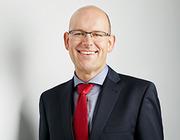Most Germans perceive the distribution of goods and assets, also between the generations, as unfair in their country. This is a cause for concern: People who perceive more injustice place less trust in politics and institutions and are less likely to embrace change.
Only 17 percent of those surveyed in Germany report a sense of distributive justice in the country, and 27 percent say there is fairness between the generations. The share of those who are convinced of the fairness of their own assets (34%) and income (35%) is somewhat higher. There are clear differences in this regard between different population groups: People with higher incomes and higher levels of formal education, those who have surpassed their parents' education level and men see society as being significantly more fair than those with lower incomes, lower levels of education and women.
These are the findings of our recently released study, "Perceptions of Fairness in Germany," which is based on an online survey of 4,900 people that we conducted together with the Munich-based ifo Institute for Economic Research at the end of 2021. The study explored the broader state of distributive justice in German society, perceptions of fairness with regard to one's own income and assets, as well as intergenerational justice.
![[Translate to English:] Reihe von Menschen, die über einen Platz läuft](/fileadmin/files/_processed_/2/5/csm_iStock-1223688540_MPL_ST-DZ_Retusche_Original_99249_fa8bec83e9.jpg)





